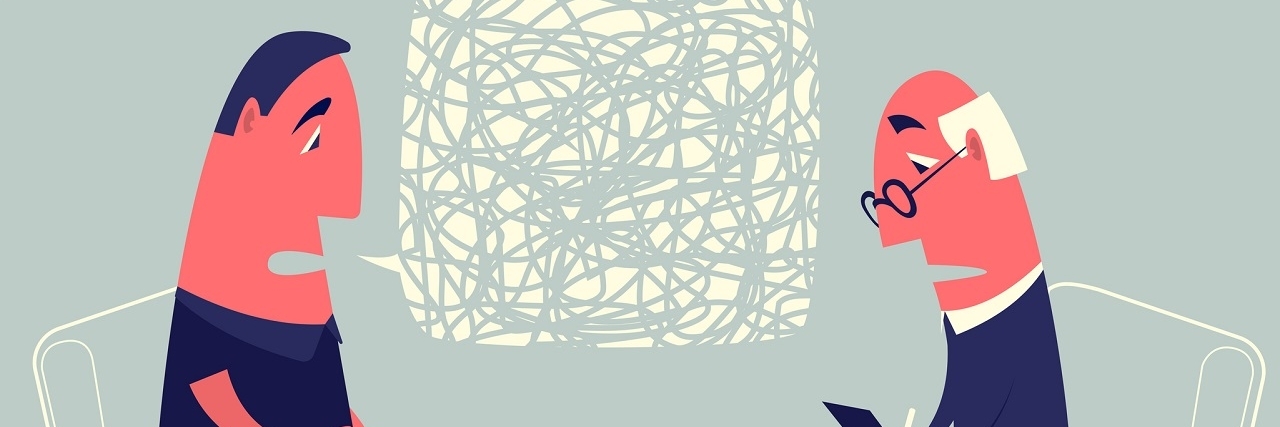During the first trips I made to a therapist, I wished I had been able to sneak into the office like a ninja. Silently and unseen, I would have arrived at my appointment with the black outfit and sword, ready to take on the challenge of healing.
But getting the right kinds of attention and not making a fuss about anything downbeat were a couple of the reasons I was going “crazy” in the first place.
That’s why responding to someone talking about their counseling can be so difficult. People can start to feel relieved, as I did, or never want their therapy acknowledged because of stigma.
When you’re talking to someone about their counseling, there are some things you should know. Whispers in public might be a giveaway, along with public one-on-one conversations. There’s always a right time for sensitive discussions like that. When in doubt, don’t pry and remain positive.
It sounds strange to encourage being upbeat around people whose treatment involves talking about painful experiences and taking medications no one can pronounce. They are tools that can fight the combination of heredity and environment that can beat up on people’s spirits.
If you’re someone like me — depressive with anxiety issues that pop up through obsessive thinking — the sheer volume of everyday life can be overwhelming. I used to cringe when I heard myself described as sensitive. Fingernails scraping on blackboards, loud sirens and yapping dogs don’t bother me, yet I have a lot difficulty not getting bogged down around other people’s bad moods. What’s worse is hearing how positively awesome some people’s lives are and then being asked how mine is.
No wonder I wanted to be a ninja. They come and go as they please and don’t get delayed with chatter about how everyone else is doing in the professional assassin business.
If someone going through therapy does choose to open up, “hope you feel better” is a safe choice around people feeling emotionally bruised and wanting to hide. So is “I hope it’s helping.”
It used to be that going into rehab or an Alcoholics Anonymous meeting was mysterious because no one talked about addiction and recovery. Now with people becoming more willing to talk about how they have improved with treatment, AA is a household name. When it comes to mental health, we are at a place where substance abuse was not too long ago. The conversation is opening up, and we’re learning stories about mental health can encourage everyone to live healthier lives.
If you still wonder about how to talk about therapy, consider how you might chat with someone who has successfully gone through a rehab program or is sober. It’s not a perfect analogy, but I’ve noticed people are a little more clued in to rehab as opposed to therapy.
Sessions helped me improve, though I still can feel the pull of the old addiction. Ninjas are supposed to be efficient, never making a single mistake while on a mission. But as I’ve learned, the “perfect patient” is a myth, and should be disregarded as much as the view that trips to one’s therapist are less real than trips to any other doctor.
We want to hear your story. Become a Mighty contributor here.
Lead image via Thinkstock

